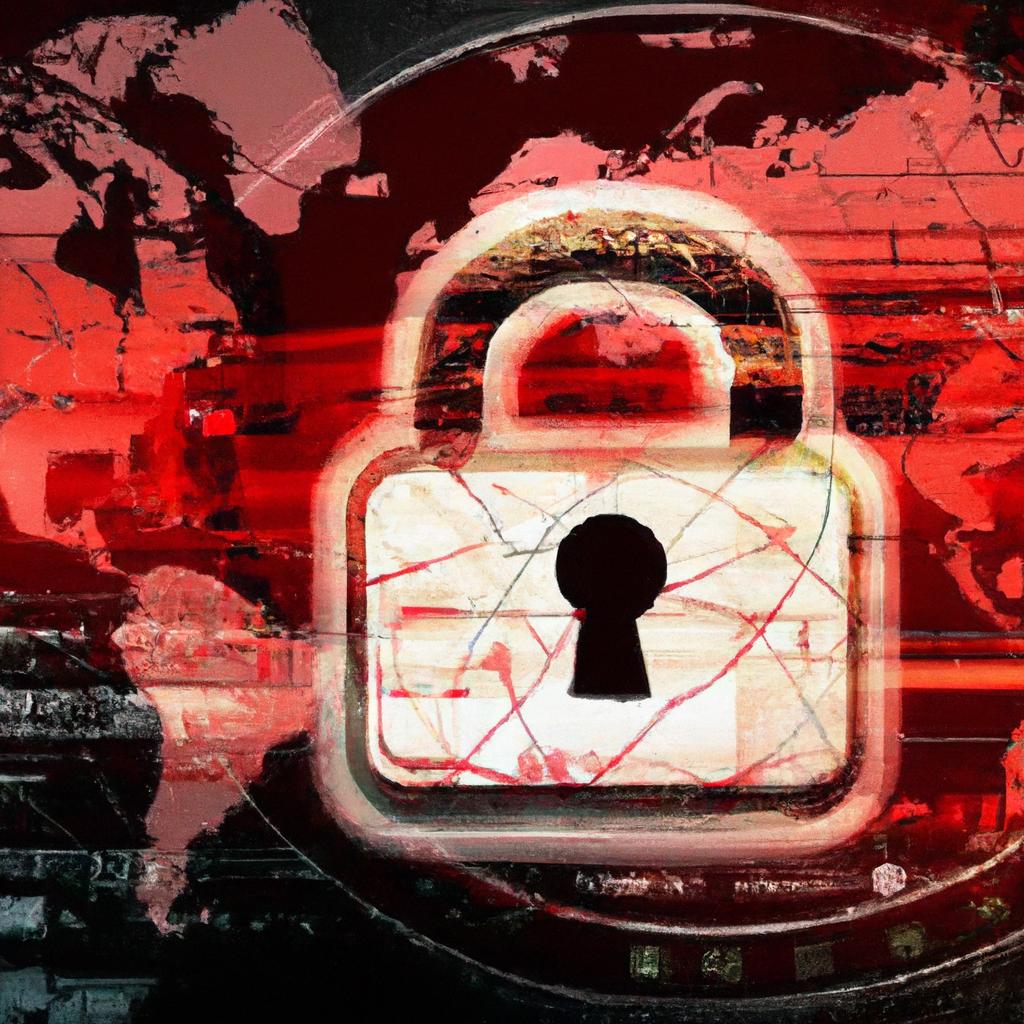In a groundbreaking move to combat cybercrime, the United States has taken decisive action to ban crypto addresses associated with the notorious LockBit ransomware group from the country’s financial system. This bold stance marks a significant step in the global fight against cyber threats and underscores the government’s commitment to protecting against malicious actors in the digital realm. Let’s delve deeper into this landmark decision and explore its implications for the future of cybersecurity.
Concerns over Security Risks Posed by LockBit Ransomware Group
The U.S. government has taken a decisive step in combating the threat posed by the LockBit ransomware group by banning all crypto addresses associated with the nefarious organization from the financial system. This move comes in response to the increasing concern over the security risks posed by the activities of the LockBit ransomware group.
LockBit is known for deploying sophisticated ransomware attacks against various organizations, encrypting their systems and demanding hefty ransom payments in return for decryption keys. These attacks have not only caused significant financial losses but have also raised serious concerns about the vulnerability of critical infrastructure to cyber threats.
The ban on crypto addresses tied to the LockBit ransomware group is part of a larger effort to disrupt their operations and prevent further attacks. By cutting off their access to the financial system, the U.S. government aims to weaken the group’s ability to profit from their criminal activities and deter future ransomware attacks. This bold move sends a clear message that ransomware groups will face consequences for their actions.
Implications of U.S. Ban on Crypto Addresses Linked to LockBit
Recent developments in the fight against cybercrime have led to the U.S. government imposing a ban on crypto addresses associated with the LockBit ransomware group. This move aims to disrupt the financial operations of the notorious group and prevent them from profiting off their illegal activities.
The ban on crypto addresses linked to LockBit has significant implications for the financial system, particularly in terms of combating ransomware attacks. By cutting off the group’s access to cryptocurrency transactions, authorities hope to thwart their ability to extort money from victims and fund their criminal operations.
While the ban may hinder the LockBit ransomware group’s activities, it also raises questions about the broader implications for privacy and financial regulations. This move highlights the growing need for tighter controls on cryptocurrency transactions to prevent misuse by criminal organizations and protect the integrity of the financial system.
Protecting Financial Systems from Ransomware Threats
The recent ban on crypto addresses associated with the LockBit ransomware group by the U.S. government marks a critical step in safeguarding our financial systems from cyber threats. The group, known for using sophisticated ransomware attacks to extort money from businesses and organizations, has been a significant concern for cybersecurity experts.
By prohibiting transactions involving the identified crypto addresses, the U.S. aims to disrupt the ransomware group’s ability to profit from their criminal activities. This action not only hampers their financial operations but also sends a strong message to other cybercriminals that such illicit activities will not be tolerated.
Financial institutions and businesses are urged to remain vigilant and implement robust cybersecurity measures to protect themselves from ransomware threats. It is essential to regularly update security protocols, conduct thorough risk assessments, and educate employees on how to identify and respond to potential cyber threats effectively.
Collaborative Efforts Needed to Combat Cybersecurity Challenges
Amidst the rising cybersecurity challenges, the U.S. government has taken a significant step in combatting cyber threats by banning crypto addresses associated with the LockBit ransomware group from the financial system. This move is a crucial part of collaborative efforts to safeguard businesses and individuals from falling victim to ransomware attacks.
The LockBit ransomware group has been identified as a major player in the realm of cybercrime, targeting organizations and demanding ransom payments in cryptocurrencies. By cutting off their access to the financial system, the U.S. aims to disrupt their operations and prevent further damage to vulnerable entities. This proactive approach highlights the importance of cooperation between government agencies, businesses, and cybersecurity experts in addressing and mitigating cyber threats.
In addition to regulatory measures, it is imperative for organizations to prioritize cybersecurity measures such as implementing robust security protocols, conducting regular vulnerability assessments, and educating employees on best practices to prevent cyber attacks. By working together and staying vigilant, we can create a safer digital environment for all stakeholders.
The Way Forward
As the U.S. takes steps to prevent the use of crypto addresses linked to the LockBit ransomware group, it is clear that ongoing efforts are needed to combat cybercriminal activity. By targeting the financial systems that enable these illicit activities, authorities are sending a strong message that such behavior will not be tolerated. As the digital landscape continues to evolve, it is essential for policymakers, businesses, and individuals to remain vigilant and work together to safeguard against cyber threats. Together, we can build a more secure and resilient online environment for all.
